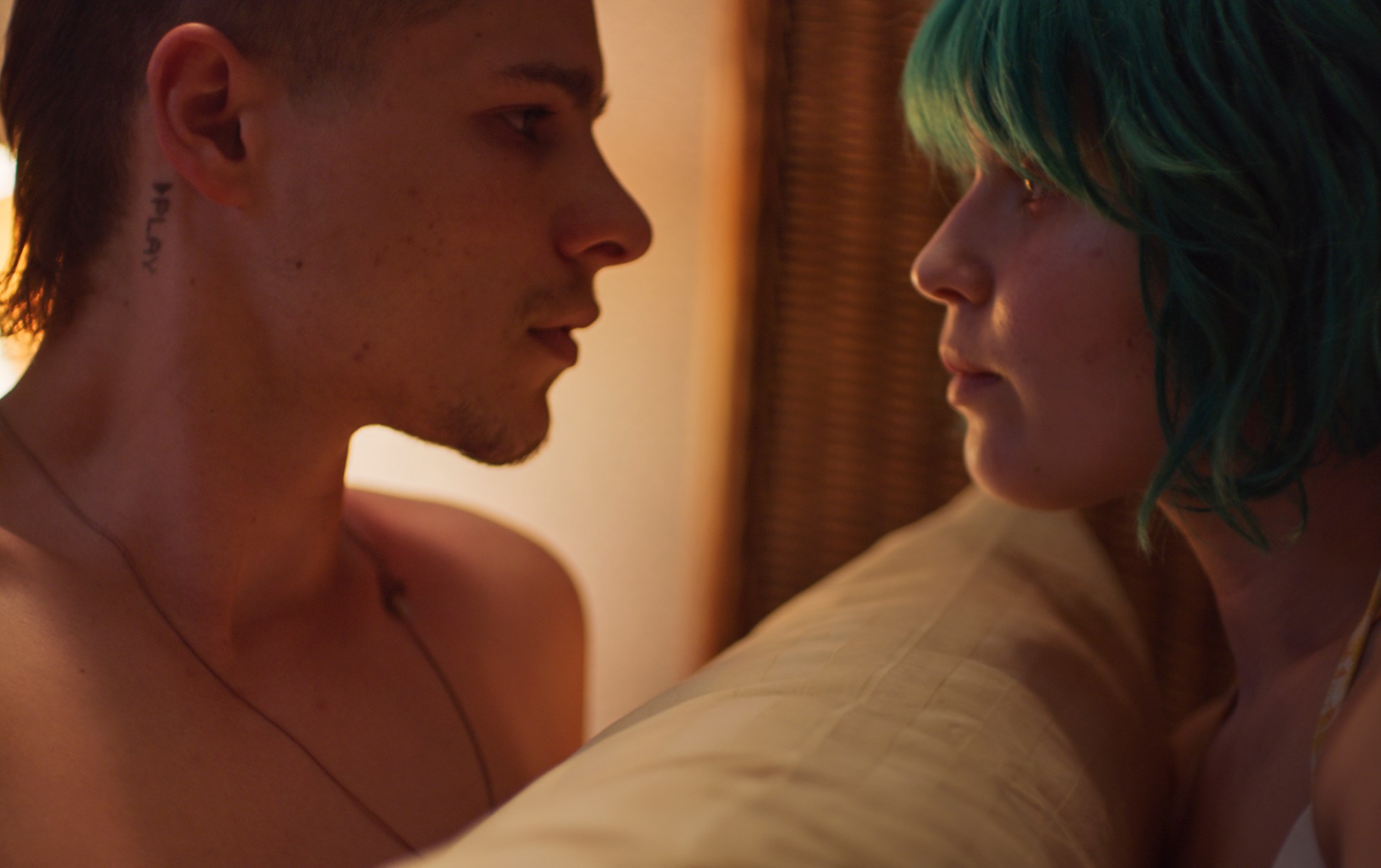As an actress, Eliza Scanlen has found herself in a peculiar niche: playing young women who die tragically. First, there was Beth March, who succumbed to scarlet fever in Greta Gerwig’s 2019 adaptation of Little Women. Now, in her second film role, the 21-year-old plays terminally ill teen Milla Finlay in Babyteeth, Shannon Murphy’s coming-of-age film (that’s released on streaming services today).
Babyteeth follows Milla as she falls madly in love with a scrappy drug dealer named Moses (Toby Wallace) and gains a newfound lust for life, just as it’s all beginning to slip away from her. Milla’s parents try to shelter their daughter and themselves with denial, prescription drugs and parties, but in the end everyone is forced to confront their mortality.
While set in different centuries and different countries, both of Scanlen’s films benefit from the sensitive eye of female directors, who imbue their female protagonists with differently nuanced relationships with death.

Scanlen played the two parts within months of each other, so she says she’s thought “a lot” about their plights. “They’re both going through a huge change in their life, and they react to that in different ways,” she says over the phone from her home in Sydney, Australia.
Beth is “more religiously inclined” and therefore more willing to embrace death and “trust that she is being taken to another place that is better for her,” but Milla lacks that spirituality and instead denies her reality, Scanlen says. “Their ways of accepting death are very different. For a long time, Milla is running away from it.” But she does eventually have “a kind of spiritual awakening.”
While much of the film shows Milla growing to reckon with her fate, it’s far from an entirely sad story. Babyteeth is frequently funny and awkward in the best way. In one memorable scene, Milla’s dad has a strange erotic encounter with his disarmingly honest, pregnant neighbor (whose lost dog he shares a name with). Milla’s mum also provides erratic and eccentric comic relief, at one point crawling under the piano to demonstrate how Milla slept there as a child.

Babyteeth’s portrayal of teenagers’ seesawing emotions is done almost uncomfortably well, and it shows how emotions and rites of passage are heightened by illness. When Milla asks Moses to go with her to her school dance, she throws up—but we realize it’s not just from social anxiety, but also the nausea caused by her chemotherapy.
Like many teens, Milla may seem shy at first, but as she comes out of her shell her wonderful weirdness resounds in everything she does—from the way she applies the lipstick that she steals from the drugstore, to her array of wildly colorful wigs and outfits.
“Milla’s weirdness is relatable to me,” Scanlen admits. “I found it really interesting to play a character that felt so chaotic and frenzied and vulnerable, but she’s still very much the parent of the house. In many ways [she’s] the most mature of the four. I feel like this is the essence of teenagehood—you feel like you know everything, but no one seems to be able to hear you, and you feel misunderstood. No one can quite relate to the severity of Milla’s experience, and all the emotions she’s dancing through.” Literally. Milla finds an outlet in dancing—often launching into spontaneous moves, twisting her limbs to match her twisted situations. The soundtrack to these moments (Tune-Yards, Sudan Archives, Ariel Pink and Vashti Bunyan) is as vibrant and eclectic as she is.
Some of us watching might feel weirdly envious of Milla’s quiet confidence, but then we realize it comes from her unique and tragic circumstances. It’s easy to be bold when you feel you have nothing to lose and time isn’t on your side.

Milla first brings Moses home to her parents as a kind of prank, or cheap thrill. They, of course, are turned off by his tattooed face and dirty clothes, and she, of course, falls for him—kissing him for the first time in front of her dad. After that she turns and gives a knowing, mischievous glance to us, the audience. It provides a kind of humor and vitality not often seen in films with such gravely serious storylines.
Scanlen says this moment of reckless sexuality was scripted, even though it comes across as spontaneous. “She’s trying to collect these life-affirming experiences and she’s chasing things that will make her feel something, deeply. This is one of them. The look to the audience is an acknowledgement of the risk that she’s just taken. The thrill of it in her eyes—we recognize it, straight away. At that point she’s not quite totally in love with Moses, and she knows it’s a risk, and that excites her.”
We both agree we wouldn’t have had the guts to do that at her age. “But there’s a ferocity to Milla,” Scanlen says, “this attitude of, ‘if not now, when?’—that leads her to some really peculiar situations, and some beautifully raw places.”

Babyteeth beautifully captures the strength of a teenager battling illness, and how that contrasts with parents who often struggle to contain their grief. Milla’s parents’ gradual unwinding and abuse of prescription drugs is another raw and compelling part of the film. They’re “a lot more vulnerable” than Milla, Scanlen explains. “In many ways they can’t cope with this reality, but she can.”
Like all films that are coming out right now, Babyteeth finds itself come under a different kind of scrutiny than it may have had it been released before the world began grappling with systemic inequality. Before this new context, Milla’s architecturally designed, mid-century modern-outfitted, suburban Sydney home might not have stood out so much as a symbol of her upper-class stature. But now it comes into even starker contrast with Moses’ small, crowded home, which is literally closed to him. His subsequent presence in Milla’s house causes tension in more ways than one, but ultimately serves to bring everyone closer together.
“She was definitely supported and cradled through that process, and that’s something that a lot of people don’t have,” Scanlen says of Milla’s privilege. “She has a good life, despite all of that emotional trauma that comes with cancer.”
Ultimately, Milla and Babyteeth show us the value in embracing our curiosities and embodying both tenderness and toughness. These aren’t conflicting qualities, but a harmonious strategy for survival.
